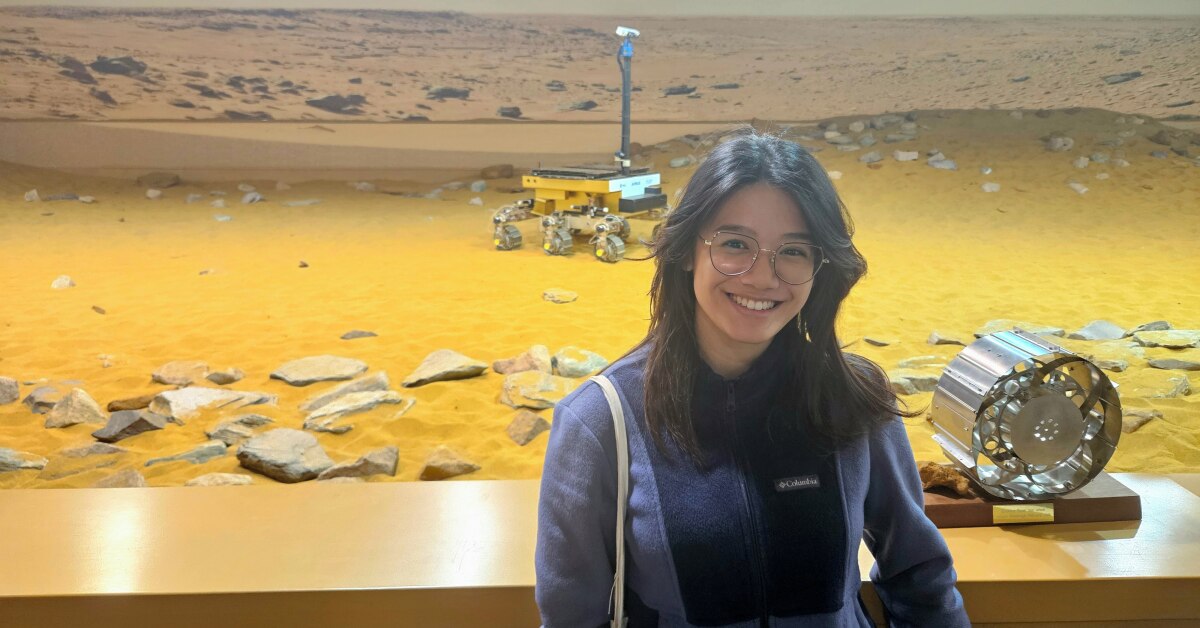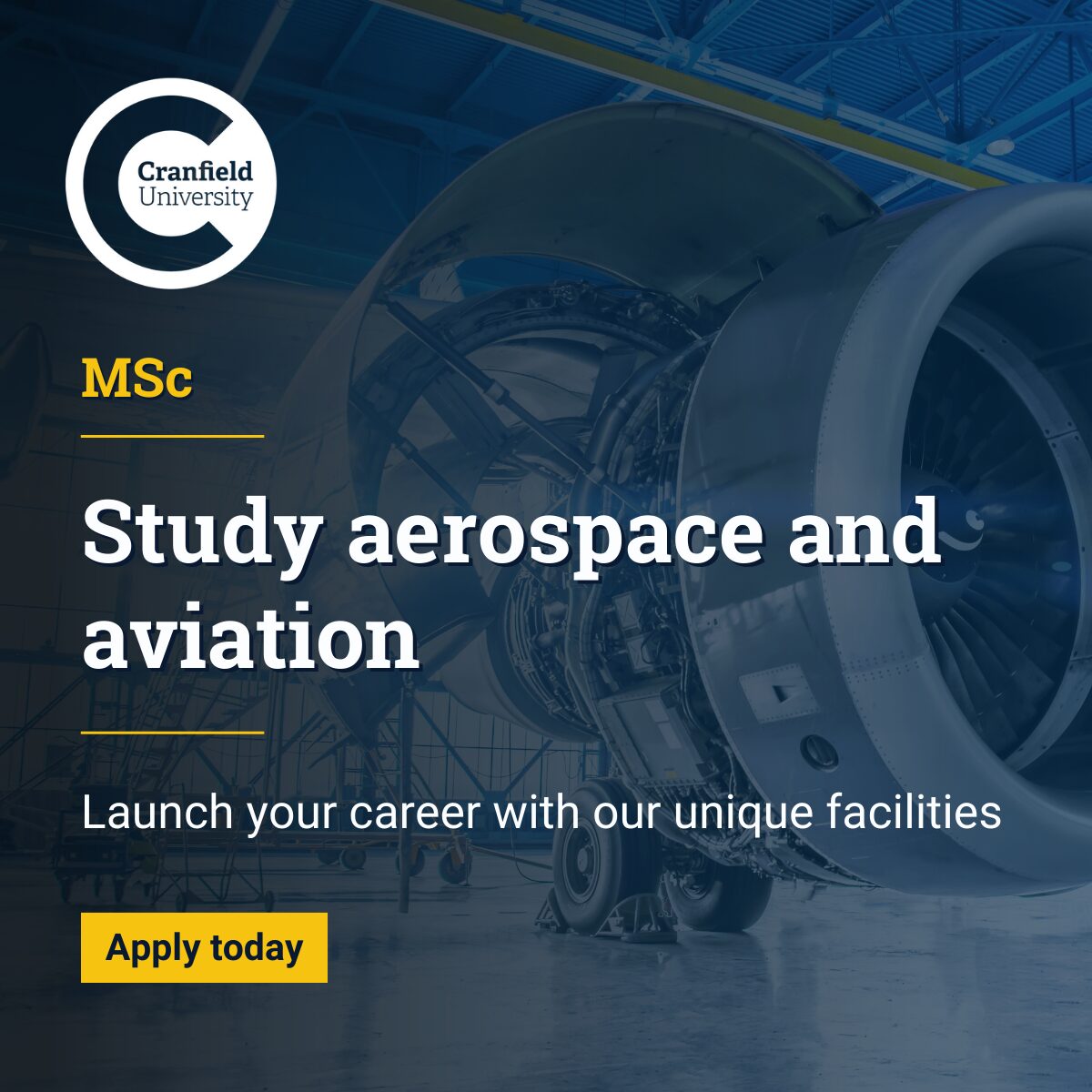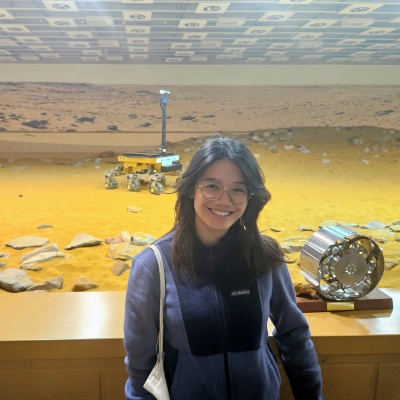My Journey in Aerospace: From Taiwan to Cranfield
19/09/2024

Meet Mei-Ying Teng, a recent Aerospace Computational Engineering MSc graduate. Originally from Taiwan, Mei’s passion for aerospace research led her to choose Cranfield for its unique focus in the field.
Hi everyone! I’m Mei-Ying Teng, but you can call me Mei. I recently graduated (2023-24) with a Master of Science in Aerospace Computational Engineering from Cranfield University in the UK. Originally from Taiwan, I chose Cranfield for its unique focus on aerospace research.
Why Cranfield?
There are many general MSc courses in Aerospace, but I craved a programme with dedicated lecturers, passionate about the field. Cranfield stood out for its specialisation and research focus, and I knew I would be surrounded by like-minded individuals who shared my passion.
A Tailored Learning Experience
The course felt perfectly designed for those seeking a specialisation in computational methods for aerospace applications. It provided a solid foundation in Computational Fluid Dynamics (CFD) principles while exposing me to various possibilities within the field.
One of the highlights was working on UCNS3D, a compressible flow solver developed by my thesis supervisor, Dr. Takis Tsoutsanis. This hands-on experience allowed me to learn about developing novel CFD solvers and apply theoretical knowledge. It was a refreshing change from using commercial software.
I still remember meeting Dr. Tom Teschner at the course induction. I was discussing my bachelor’s thesis, where I used CFD simulations to study a delta wing’s aerodynamic performance but was limited to 1-6 million computational cells. Dr. Teschner’s response, “6 million cells is where we start at,” solidified my decision that Cranfield was the right place for me.
A Day in the Life of a Cranfield Student
As a commuter student, I typically arrived on campus around 9am. I’d begin by finding a quiet space to plan my day and then head to lectures or work on assignments. I usually aimed to finish by 5pm, though busier days stretched until 7pm.
Outside of academics, I was passionate about STEM outreach. As an Outreach Officer with the CranSEDS Society, I participated in events at local schools and universities, sharing stories about space-related projects like rocket, satellite, and rover design. It was inspiring to see these projects bring together students from various disciplines, including CFD and Astronautics & Space Engineering.
During my thesis writing, the library became my haven. I cherished working under natural sunlight and taking breaks at “The Nook,” where I could unwind with jigsaw puzzles and Sudoku.
My Cranfield Experience
My undergraduate studies in Aerospace Engineering at Swansea University gave me a solid foundation for the UK study experience, which emphasises independent study and development. Cranfield, however, delivered a specialised, intensive learning environment. The professors are experts in their fields, and the coursework demands a high level of commitment. Yet, the lecturers are supportive. As long as you’re clear about your goals and seek help when needed, success is achievable. My time at Cranfield has shaped my learning style and instilled a passion for lifelong learning.
Aspirations and Advice
I hope to develop a fulfilling career as a CFD engineer within the aerospace field. My advice for aspiring CFD enthusiasts would be to identify areas for development and seek relevant resources. Maintain a strong interest in the field and build a portfolio showcasing your skills.
A Fun Fact?
While not necessarily relevant, I used to use Microsoft Excel for basic numerical analysis for finite element methods before discovering CFD software. This sparked my interest in competitive esports for Excel, where players compete in solving tasks and problems using Excel features. Financial modelling and logical thinking are popular contest categories.
I hope this gives you a glimpse into my journey as an aspiring CFD engineer at Cranfield University. Feel free to reach out if you need more information.
Categories & Tags:
Leave a comment on this post:
You might also like…
From classroom to cockpit: What’s next after Cranfield
The Air Transport Management MSc isn’t just about learning theory — it’s about preparing for a career in the aviation industry. Adit shares his dream job, insights from classmates, and advice for prospective students. ...
Setting up a shared group folder in a reference manager
Many of our students are now busy working on their group projects. One easy way to share references amongst a group is to set up group folders in a reference manager like Mendeley or Zotero. ...
Company codes – CUSIP, SEDOL, ISIN…. What do they mean and how can you use them in our Library resources?
As you use our many finance resources, you will probably notice unique company identifiers which may be codes or symbols. It is worth spending some time getting to know what these are and which resources ...
Supporting careers in defence through specialist education
As a materials engineer by background, I have always been drawn to fields where technical expertise directly shapes real‑world outcomes. Few sectors exemplify this better than defence. Engineering careers in defence sit at the ...
What being a woman in STEM means to me
STEM is both a way of thinking and a practical toolkit. It sharpens reasoning and equips us to turn ideas into solutions with measurable impact. For me, STEM has never been only about acquiring ...
A woman’s experience in environmental science within defence
When I stepped into the gates of the Defence Academy it was the 30th September 2019. I did not know at the time that this would be the beginning of a long journey as ...









Comments are closed.